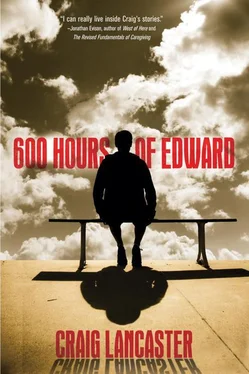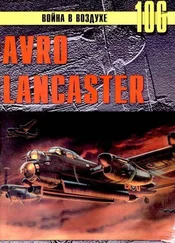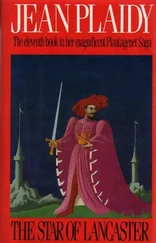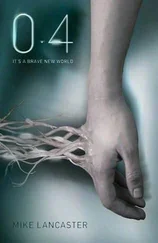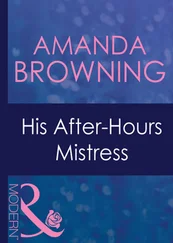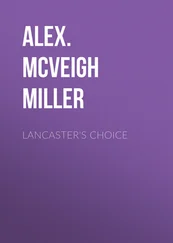The snowball crashes against the back of Donna Middleton’s head, spraying snow on her shoulders.
She pivots and faces me, her jaw slack.
I look back at her and want to say I’m sorry, but my mouth moves only a little and forms no words.
And then she throws a snowball at me, which explodes against my buttoned-up coat.
She starts laughing, and I throw one back. Now she’s taking evasive action, running erratically in loops around the yard as I give chase. Kyle has left the Blue Blaster, and he’s chasing her, too. We’re throwing snowballs and chasing and laughing, and I cannot remember the last time I did any of these things.
– • –
That’s not true. I can remember.
In November 1974, when I was five years old, my father took me on a business trip. We flew from Billings down to Denver on a Saturday—I remember the day clearly because there was no school, and it was the weekend before Thanksgiving. When we landed in Denver, my father hailed a cab that took us to a downtown hotel. It had been snowing in Denver, and downtown was mostly dead on a weekend. The gray of the day and the snow combined to give downtown Denver an eerie sort of pallor (I love the word “pallor”), one that was both appealing and a little creepy. After dinner, my father and I went outside and built a snowman on a deserted street corner, then pelted it with snowballs. It was fun.
The next morning, another cab took us to the International Harvester dealer in Denver, where my father signed the paperwork on a new red Paystar 5000. It must take an awful lot of paperwork to close a deal on such a purchase; I remember that we were there for a long while. I amused myself thumbing through glossy brochures that touted the latest in International Harvester machinery.
After that, we road-tripped in the new truck down to Midland, Texas, where the Mayhew Co. was waiting to put a drilling rig on the back of it. That’s the earliest memory I have of being in a big truck with my father, and I have vivid memories of thinking that he had to be just about the coolest father in the world. He was in a good mood, too, honking the horn for children in passing cars who would hold up their right fists and pull down twice, asking for such an acknowledgment. I can’t account for that good mood, because although I did not know it at the time, my father’s life was in a shambles. The reason I was with him at all was that my mother had left him, something I didn’t learn until years later, 1992, when my mother mentioned it in a fight with my father.
In Midland, we were met by Grandpa Sid and Grandma Mabel, who picked us up and drove us the seven hours back to Dallas for Thanksgiving. That day, we saw rookie quarterback Clint Longley come off the bench after Roger Staubach got hurt and lead the Dallas Cowboys to an incredible 24–23 victory over the Washington Redskins, still one of the most amazing finishes in Cowboys history. Longley hit Drew Pearson on a fifty-yard touchdown pass with twenty-eight seconds left to win the game.
“Teddy,” my father said, “as long as you live, you’ll never see another one like that.” (On a Thanksgiving Day nineteen years later, I saw one even more amazing, in a bad way. Leon Lett slid into the ball after a blocked field goal attempt that would have given the Dallas Cowboys a victory over the Miami Dolphins. Miami recovered the ball, kicked again, and won. I wrote Leon Lett four letters that week, castigating [I love the word “castigating”] him for his foolishness.)
Back in 1974, two days after Thanksgiving, my father and I were on a plane home to Billings. Mother met us at the airport. She had come home, never to leave my father again.
Things just work out sometimes. I don’t know how or why. It would be easier if there were some hard data about these things.
– • –
“Edward,” Kyle says to me. “Do you want to come over and play some Guitar Hero ?”
We have thrown all the snowballs we wish to throw. What had been a pristine blanket of snow on the front yard is now full of three sizes of footprints and tiny valleys where snow was scooped up.
I don’t want to play Guitar Hero . I don’t want to go to Donna and Kyle’s house. Why, I cannot explain. I also do not want to be rude. Dr. Buckley says it is OK for me to not want to do some things but that I don’t have to “be abrupt” with people. She says one of the keys to getting along socially is being able to say no firmly and gracefully. I try this.
“No, thank you, not today.”
“Oh.” Kyle—and even Donna—looks a little sad. Saying no is hard. No wonder Dr. Buckley has spent so much time talking about it with me.
“But I have a large DiGiorno supreme pizza,” I say. “Would you like to have dinner with me?”
“Can we, Mom?”
“Sure,” Donna says. “Thank you, Edward. We’d be happy to.”
We agree to meet back here in an hour. At the front door, I look back and watch Donna and Kyle cross the street, hand in hand.
– • –
“You don’t have a lot of stuff, Edward.” Kyle, changed out of his playing-in-the-snow clothes, is standing in the living room, looking around.
He is not entirely correct, but it’s easy to see why he would think so. My furnishings are spare; when my father bought this house, he asked me how I would like to outfit it, and I asked for furniture from IKEA. For one thing, I like how modern it is—it is unadorned Swedish furniture. For another, IKEA furniture is all about utility. What Kyle sees as spare is actually furniture that allows me to make sure everything has its place. For yet another, IKEA furniture has to be assembled by the buyer, and I like putting things together. My father was not happy about the price—it costs a lot of money to have IKEA furniture shipped to Montana—but he let me have it.
“Watch this, Kyle,” I say.
I show him how the small entertainment center holding my TV and stereo system, against the south wall of the living room, has lots of tiny compartments and how I’ve filled them with movies and compact discs and other things. I show him the coffee table, with still more compartments, where I have stored pens and paper clips and rubber bands and batteries and other things I need.
I take him into the computer room and show him the stackable storage containers, full of seasonal clothing and household items.
“Wow. I guess you do have some stuff. Do you have a PlayStation Two?”
“No.”
“Do you have a Wii?”
“No.”
“How do you have fun?”
Before today, that’s a question that would have flummoxed me.
– • –
After dinner, Kyle is in the computer room, playing the only game I have on my computer: blackjack. I had spent a few minutes explaining how it worked, how he didn’t want to exceed twentyone with his cards. I showed him how he could split two cards of the same number and double his bet.
“But only do it with aces and eights,” I said.
“Why?”
“Because with anything else, you’re only building two bad hands. If you split two tens or two face cards, you’ve broken up a hand that will win most of the time. Same thing with two nines. With two sevens, often the best you can do is get two ties, and that’s only if you draw tens on each one. And so on. Do you understand?”
“Not really.”
“Just play. You’ll figure it out.”
Back in the living room, Donna tells me something. “Mike’s going to be in court next week—Monday.”
“Are you going to be there?”
“Yes.”
“Will you be OK?”
“I don’t know. But I will be there, for every court appearance and for the trial.”
“Does Kyle know what happened?”
Читать дальше
